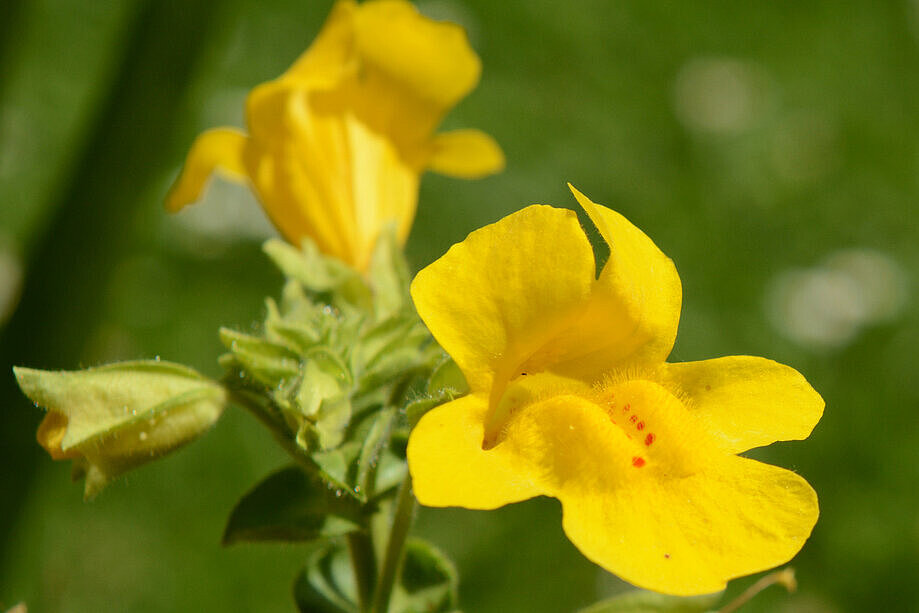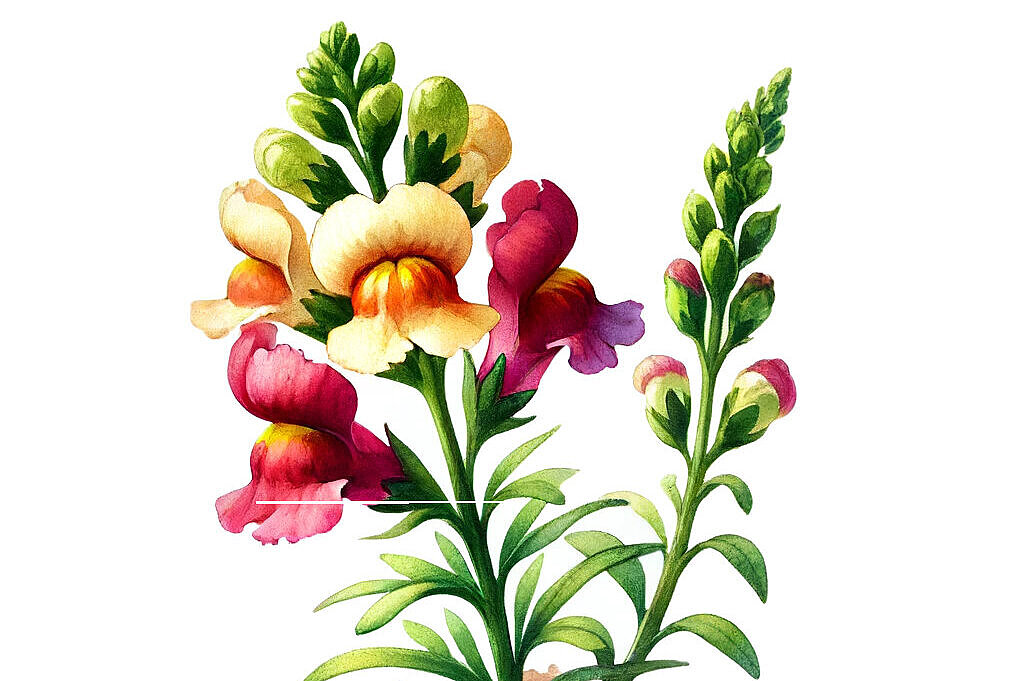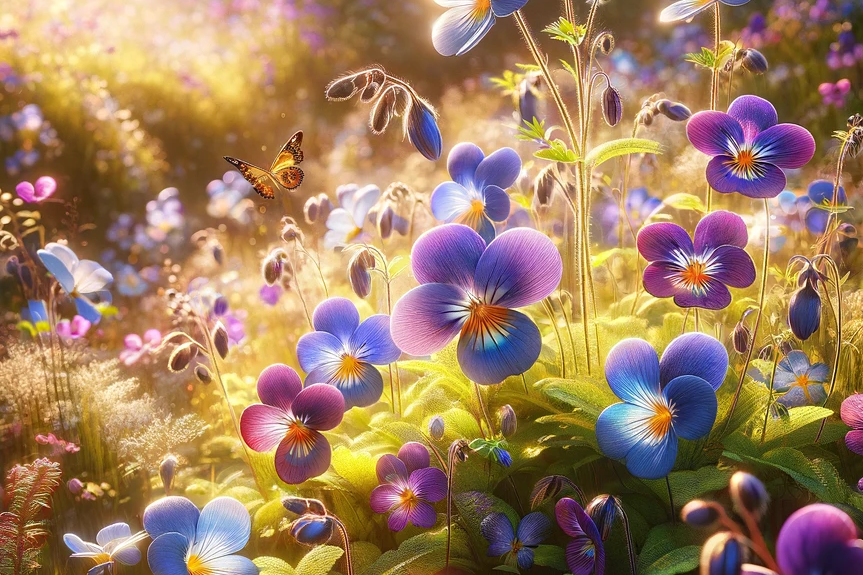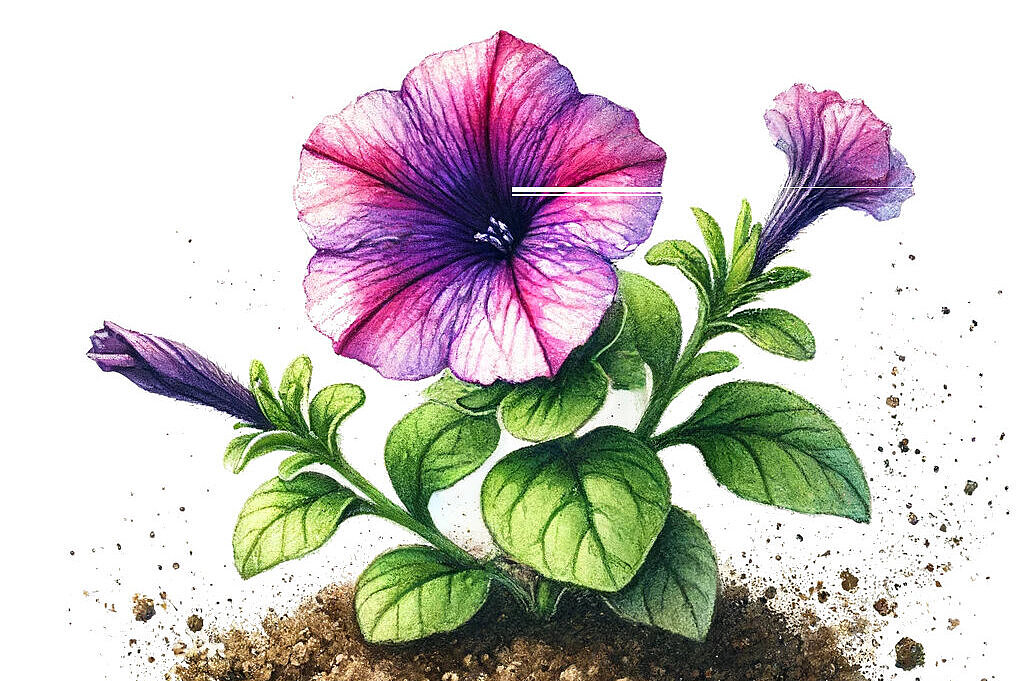columbines
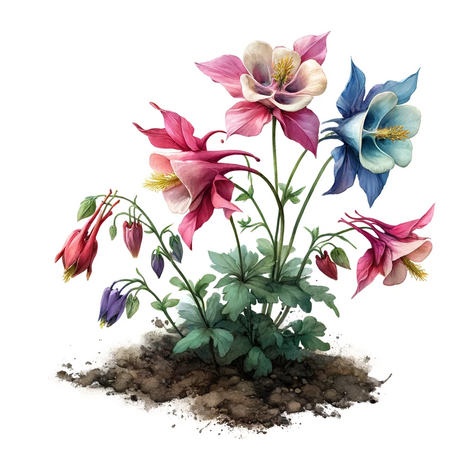
What are columbines?
Aquilegias (Aquilegia spp.) belong to the buttercup family (Ranunculaceae) and are best known for their showy flowers, which appear in a variety of colors. These perennial plants are common in temperate climates of the northern hemisphere and are often cultivated in gardens for their attractive flowers and ability to attract butterflies and other pollinators.
Introductory paragraph
Although columbines are an asset to any garden, it is important to critically consider their role in dog food. This article sheds light on the properties of columbines and evaluates how they might affect our dogs' health - for better or for worse.
Benefits of columbines: Are there any?
Aesthetic value
- Pleasure and well-being: While columbines offer no direct nutritional value to dogs, the presence of flowering plants in the environment can have a positive effect on the general well-being of dogs and their owners.
Potential medicinal uses
- Historical uses: In folk medicine, columbines have been used for various purposes, however, there is no scientific evidence to support safe and effective use in dogs.
Disadvantages and risks of columbine
The disadvantages and potential dangers that columbines pose to dogs are more significant than their potential benefits.
Toxicity
- Toxic ingredients: Columbines contain toxic substances that can cause symptoms of poisoning in dogs, especially if parts of the plant are eaten. Symptoms of poisoning can include vomiting, diarrhea, salivation and in severe cases even heart problems.
Lack of nutritional suitability
- No nutritional value: columbines offer no discernible nutritional value to dogs and should not be considered as part of their diet.
Final assessment
Columbines may be a visual addition to the garden, but they pose risks to our dogs' health. Their toxicity makes them a potentially dangerous plant that should only be used with extreme caution around dogs, if at all.
The safety of our dogs always comes first. Therefore, it is important to be aware of the potential dangers that certain plants, including columbines, can pose. While seeking out natural and healthy supplements to feed our dogs is commendable, we must ensure that our choices do not inadvertently lead to health problems. Due to their toxicity, columbines do not belong anywhere near our dogs. There are numerous alternative plants and supplements that are safe and beneficial for the health of our four-legged friends. So let's explore these safer alternatives and leave columbines where they belong - as a visual delight, viewed from a distance.
Properties 5
Are you looking for other ingredients with a specific property?
Just click on them to find more.
If you notice any signs of hypersensitivity or poisoning in your dog, you should see your vet immediately. We are not a substitute for a vet, but we try to be as accurate as possible. Every dog reacts differently and we recommend you get a second opinion or consult your vet if in doubt.
Stay healthy and take good care of your four-legged friend!😊
Similar to columbines
The yellow juggler's flower is a perennial plant that can grow up to 50 cm tall. It has yellow flowers that bloom from May to September and green leaves that are pinnate or lobed. The plant grows...
Snapdragons belong to the Plantaginaceae family and come in a variety of colors, from soft pastels to bright primary colors. These plants are popular not only for their appearance, but also for their...
The elfin mirror, also known by its botanical name Nemesia, is a plant species that is particularly appreciated for its colorful and attractive flowers. Originally native to South Africa, the fairy...
Petunias are among the most popular flowers for summer beds, balcony boxes and hanging baskets. They originate from South America and belong to the nightshade family (Solanaceae), which also...
